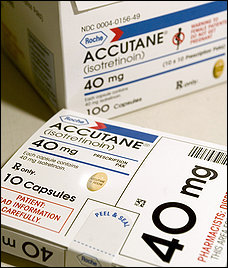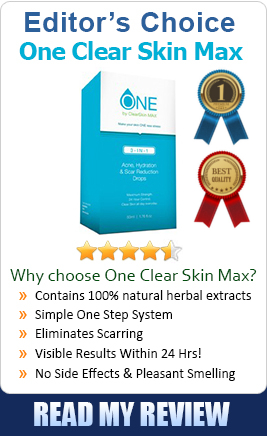Eruption of pimples is a problem dreaded by one and all. Acne is condition that thousands of people suffer from, especially youngsters. The inflammation that usually accompanies acne is caused by the increase in the secretion of sebum, which is an oily substance that is produced by the sebaceous glands of the skin.
Not only do these make your face look blemished, they are also terribly painful. Plus there is always the fear of infecting them if you happen to touch them by mistake. Nobody likes marks and scars on their face, the most attractive and more importantly, public part of a person.
Good treatment for acne and pimples is not only rare but also very much coveted. Accutane is one such acne treatment that has wondrous effects. Accutane is one such drug that provides intensive acne cure, when all other milder forms of medication fail.

- Accutane
Accutane or Isotretinoin is a derivative form of vitamin A, and belongs to a category of drugs called Retinoid, popularly used for treating various dermatological conditions. It is generally used as a last resort, after everything else fails; accutane is a sure remedy.
It reduces sebum secretion of the facial tissues to reduce acne and clear pimples without scarring. However because it is so effective it may sometimes cause side effects which is why it is used only as the last resort. It is usually administered orally in the form of pills for about 15-20 weeks. A daily dosage of about 0.5 mg – 2 mg/kg is recommended.
Discovered in 1979, it was first administered to a couple of people in 1982, with severe acne condition who reported dramatic results with the curing of the acne without any scarring. Originally it was only prescribed in severe conditions, where the acne did not respond to any other treatment. Accutane works very well on acne for several reasons.
First of all, accutane reduces the size of the skin’s oil gland by about 35-60% and consequently reduces the oil content of the glands by almost 80%. Since acne bacteria thrive in this skin oil, accutane successfully kills a majority of this bacteria, thus reducing acne drastically. Accutane moreover has anti inflammatory qualities which in turn reduce the swelling of the skin caused by pimples.
Moreover accutane deters the production of skin cells, inside the pores, and thus prevents the pores from becoming clogged in the first place. Some people have however noticed that after starting to use accutane therapy the acne gets worse. Though the number of acne does not increase, the pimples sometimes become redder and more painful. This however lasts for a short while, before the acne starts disappearing.
Accutane has revolutionized the treatment of acne, with mostly complete clearance of acne in almost 95% people, irrespective of whether it is inflammatory or non-inflammatory acne. Of these a relapse rate of only 33% has been reported. In such cases a second dosage is prescribed. However studies have also shown that the relapse rate is strongly influenced by the dosage.
For instance those who have had a cumulative dosage of 100-120 mg/kg, have reported the lowest relapse rates, while others who have been administered with lower dosages have shown higher relapse rates.
However, because it is so potent, it has a variety of side effects. The side effects again are mostly associated with the simultaneous consumption of accutane and alcohol. Accutane and alcohol, together can also cause serious damage to one’s fetus, and thus should be completely avoided if one is pregnant or trying to conceive.
Studies have proved that accutane, which resembles rhetinoic acid, in its molecular structure, which is directly responsible for embryonic development, but in combination with alcohol can cause serious damage to the fetus. Moreover the combination of accutane and alcohol can cause heavy liver damage along with stunted height, hair loss and chronic depression in teenagers.
Irrespective of its side effects, accutane has been known to be successful in the treatment of eruptive and extreme acne flairs of the most acute form. It can treat severe cystic acne and has also been found useful in treating neuroblastoma, a type of cancer that damages nerves. To sum up, it can be said that it is best to use accutane, only in case of severe problems, and to avoid mixing accutane and alcohol to restrict the side effects at least to some extent.



